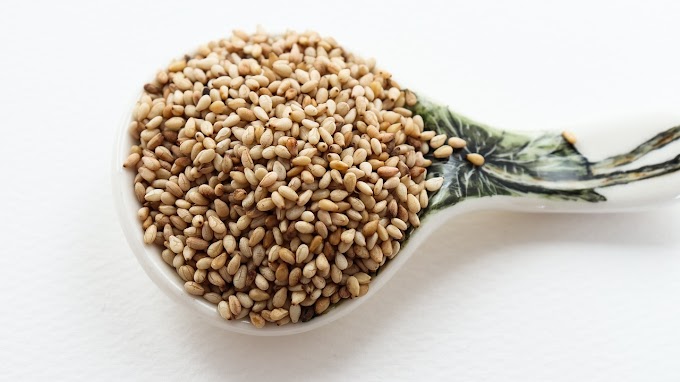Introduction


Why Set Health and Fitness Goals?
Setting specific health and fitness goals provides a roadmap to a healthier and happier life. Several compelling reasons underscore the importance of goal-setting in this journey:Motivation: Goals serve as a constant source of motivation, helping you stay committed to your wellness routine, even on challenging days.
Measurable Progress: Goals assist in tracking your progress, allowing you to see how far you've come and celebrate your accomplishments along the way.
Accountability: Sharing your goals with others, such as friends, family, or a fitness coach, creates a sense of responsibility, making it more difficult to give up.
Focus: Goals provide direction and focus, helping you prioritize activities and make informed decisions about your diet, exercise routine, and lifestyle.
Types of Health and Wellness Goals
Your health and fitness goals should align with your individual preferences and needs. Consider these common types of goals:Weight Loss: If shedding extra pounds is your primary concern, set a realistic target weight and a timeline to achieve it.
Muscle Building: For those aiming to build muscle and increase strength, focus on resistance training and set specific strength or muscle gain goals.
Cardiovascular Fitness: Improve cardiovascular health by setting goals related to running, cycling, or other cardio workouts.
Dietary Goals: Set goals for improving your nutrition, such as consuming more fruits and vegetables, reducing sugar intake, or increasing water consumption.
Flexibility and Mobility: Work on flexibility and mobility through activities like yoga or stretching routines.
Tips for Achieving Your Goals
Be Specific: Define your goals precisely. Instead of saying, "I want to lose weight," specify, "I want to lose 15 pounds in the next three months."Set Realistic Goals: While ambition is great, ensure your goals are achievable. Unrealistic goals can lead to disappointment and disillusionment.
Break It Down: Divide long-term goals into smaller, more manageable milestones to make your journey less overwhelming and track progress effectively.
Create a Plan: Develop a detailed plan outlining the actions you need to take to reach your goals. Include workout schedules, meal plans, and a timeline.
Stay Consistent: Consistency is key to success. Stick to your plan, even when motivation wanes. Remember why you started and keep moving forward.
Monitor Your Progress: Regularly track your progress using fitness apps, journals, or photos to stay motivated and make necessary adjustments.
Seek Professional Guidance: Consider consulting a fitness trainer or a registered dietitian for valuable insights and guidance on your journey.
The Importance of Patience and Persistence
In the pursuit of health and fitness goals, it's crucial to understand that progress may not always happen as quickly as desired. Plateaus, setbacks, and moments of self-doubt are part of the journey. Patience and persistence are your best allies during these times.Acknowledge that there will be days when you don't feel like working out or indulging in an extra treat. These moments don't define your journey; it's how you bounce back from them that matters most. Remember why you began this journey and visualize the positive changes you want to see in your life.
Stay Flexible and Adapt
While setting specific goals and creating a plan is essential, it's equally important to remain flexible and adapt as needed. Life is unpredictable, and circumstances may change. Your body may respond differently than initially expected. In such cases, it's perfectly acceptable to reassess your goals and adjust your strategies.For example, if an injury disrupts your original workout plan, collaborate with a physical therapist to create an alternative plan that still aligns with your overall objectives. The ability to adapt to changing circumstances without losing sight of your goals is a hallmark of long-term success.
Celebrate Your Achievements
Don't forget to celebrate your achievements along the way. Every milestone reached, no matter how small, is a step closer to your ultimate goal. Celebrate by treating yourself to something special, such as a new workout outfit, a spa day, or a healthy homemade meal. This positive reinforcement will boost your motivation and make the journey more enjoyable.Maintain a Support System
Surround yourself with a supportive community. Share your goals with friends and family who can provide encouragement and celebrate your triumphs with you. Consider joining fitness classes or online groups where you can connect with like-minded individuals who share similar goals. A support system can help you stay accountable and provide guidance when needed.Incorporate Variety
To prevent boredom and plateaus in your fitness journey, introduce variety into your routines. Try new activities, explore different workout styles, or experiment with diverse healthy recipes. Variety not only keeps things interesting but also challenges your body in new ways, promoting continuous improvement.Embracing a Holistic Approach
While setting and achieving specific fitness goals is crucial, it's essential to adopt a holistic approach to well-being. Consider incorporating mental and emotional aspects into your journey. Practices such as mindfulness, meditation, and stress management can complement your physical efforts, contributing to overall wellness.Prioritizing Rest and Recovery
In the pursuit of fitness goals, it's easy to overlook the importance of rest and recovery. Adequate sleep and rest days are integral components of a successful fitness regimen. They allow your body to repair, regenerate, and reduce the risk of burnout or overtraining. Listen to your body's signals and make rest a non-negotiable part of your routine.Setting Lifestyle Goals
In addition to specific fitness objectives, consider setting broader lifestyle goals. These could include improving sleep quality, reducing stress levels, or fostering better relationships. A well-rounded approach ensures that your journey toward health encompasses various facets of your life, promoting sustainable and long-term well-being.Nourishing Your Body with Real Foods
Fueling your body with nutrient-dense, whole foods is a fundamental aspect of any fitness journey. While setting dietary goals, focus on incorporating a variety of fruits, vegetables, lean proteins, and whole grains. Consider consulting a nutritionist to create a personalized meal plan that aligns with your fitness goals and enhances your overall health.Building a Positive Mindset
Cultivating a positive mindset is a powerful tool in achieving your health and fitness goals. Instead of viewing setbacks as failures, see them as opportunities to learn and grow. Practice self-compassion and celebrate progress, no matter how small. A positive mindset can help you overcome challenges and maintain enthusiasm throughout your journey.Exploring Mind-Body Connection
Explore activities that enhance the mind-body connection, such as yoga or tai chi. These practices not only contribute to physical flexibility but also promote mental clarity and emotional well-being. Incorporating mind-body exercises into your routine can create a harmonious balance between physical fitness and mental health.Staying Informed and Adapting
The world of health and fitness is dynamic, with new research and trends emerging regularly. Stay informed about the latest developments, but also be discerning in adopting new practices. What works for one person may not work for another. Continuously assess your approach, be open to adjustments, and tailor your fitness plan based on your evolving needs and preferences.Cultivating Long-Term Habits
Ultimately, the goal is not just to achieve short-term fitness objectives but to cultivate long-term habits that contribute to a sustainable, healthy lifestyle. This involves gradually integrating healthy practices into your daily routine, making them a natural and enjoyable part of your life.Encouraging Community Engagement
Consider participating in community events, fitness challenges, or local fitness groups. Engaging with a community can provide additional motivation, accountability, and a sense of camaraderie. Sharing experiences, tips, and challenges with others who are on a similar journey can be both inspiring and empowering.Conclusion
In conclusion, setting and pursuing health and fitness goals is a transformative journey that requires commitment, patience, and flexibility. By following a well-defined plan, staying consistent, seeking professional guidance when necessary, and maintaining a support system, you can overcome challenges and achieve the results you desire.Remember that your health and fitness journey is unique to you. Embrace the process, celebrate your victories, and stay committed to becoming the best version of yourself. With the right mindset and determination, you can reach and surpass your health and fitness goals, leading you to a happier and healthier life. Take that first step today and let your journey toward a better you begin.
FAQ's
1. Why is goal-setting important in the journey towards health and fitness?Goal-setting serves as a roadmap to a healthier and happier life. It provides motivation, helps in tracking progress, creates accountability, and offers direction in prioritizing actions for diet, exercise, and lifestyle choices.
2. What types of health and fitness goals should I consider?
Your goals should align with your preferences and needs. Common types include weight loss, muscle building, cardiovascular fitness, dietary improvements, and enhancing flexibility and mobility.
3. How can I stay motivated during challenging days?
Sharing your goals with friends, family, or a fitness coach can create a sense of accountability. Additionally, celebrate small victories, stay consistent, and visualize the positive changes you want to see in your life to stay motivated.
4. Why are patience and persistence emphasized in the article?
Progress in health and fitness may not always happen as quickly as desired. Patience and persistence are crucial during setbacks, plateaus, or moments of self-doubt. Acknowledge challenges, stay committed, and rebound from setbacks with a positive mindset.
5. How important is rest and recovery in a fitness journey?
Adequate rest and recovery are integral components of a successful fitness regimen. They allow the body to repair and reduce the risk of burnout. Prioritize quality sleep and incorporate rest days into your routine.
6. Can I adapt my goals if circumstances change?
Yes, it's essential to stay flexible and adapt to changing circumstances. Life is unpredictable, and your body may respond differently than expected. Reevaluate goals and adjust strategies when necessary without losing sight of the overall objectives.
7. What is a holistic approach to well-being?
A holistic approach considers not only physical fitness but also mental and emotional well-being. Practices such as mindfulness, stress management, and a positive mindset contribute to overall wellness.
8. Why is a positive mindset emphasized in the article?
Cultivating a positive mindset is crucial for overcoming setbacks and maintaining enthusiasm. Instead of viewing challenges as failures, see them as opportunities to learn and grow.
9. How can I stay informed about the latest developments in health and fitness?
Stay informed by regularly reading reputable sources, consulting professionals, and being discerning in adopting new practices. Be open to adjustments based on your evolving needs and preferences.
10. Is community engagement important in a fitness journey?
Engaging with a community can provide motivation, accountability, and a sense of camaraderie. Consider participating in local fitness groups, challenges, or events to share experiences and tips with like-minded individuals.
Remember that each fitness journey is unique, and these FAQs provide general guidance. Consult with healthcare professionals or fitness experts for personalized advice based on your individual circumstances.







